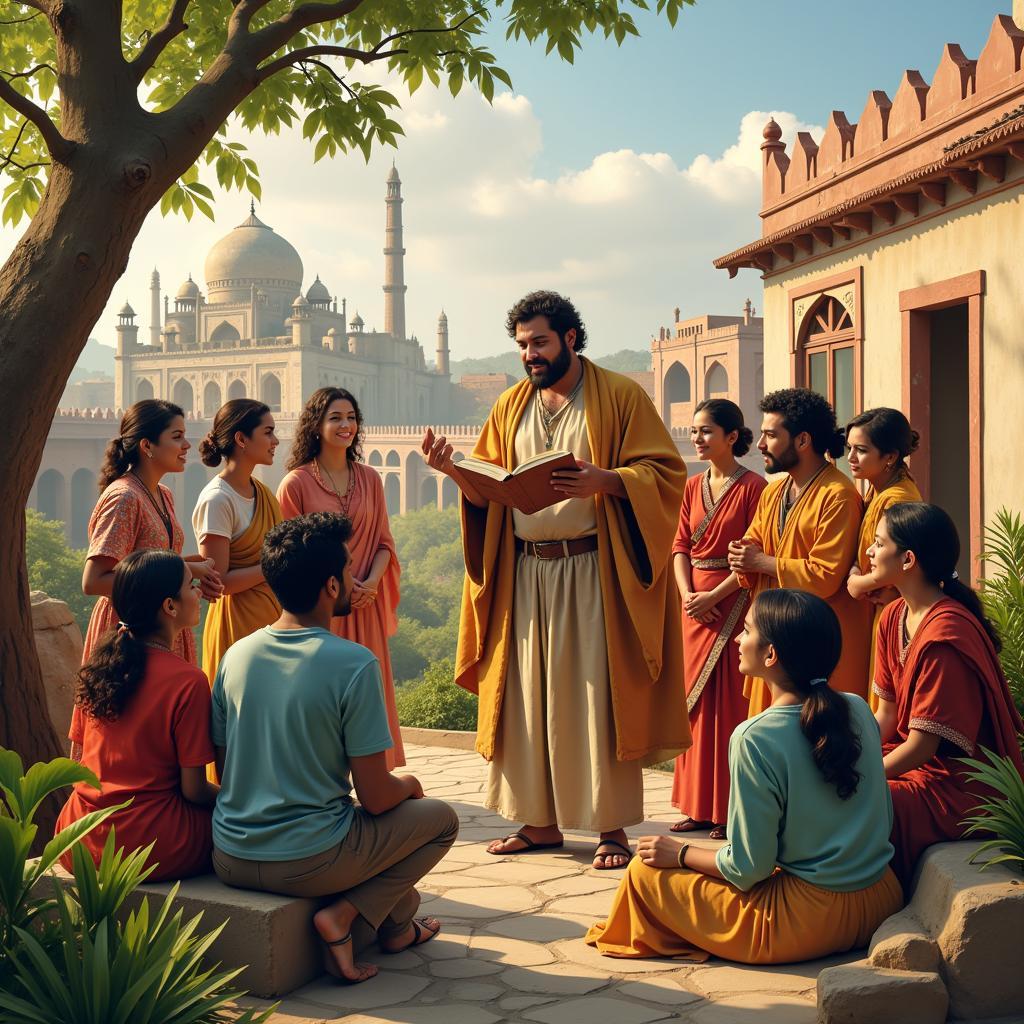Literature acts as a mirror to society, reflecting its values, beliefs, and struggles. It provides a window into the past, present, and even the future, offering insights into the human condition and how we interact with the world around us. How Does Literature Reflect Society? By exploring its themes, characters, and narratives, we can gain a deeper understanding of the complex interplay between literature and the social fabric it represents.
Through literature, we can trace the evolution of societal norms, political ideologies, and cultural shifts. From ancient epics to contemporary novels, stories have always served as a powerful medium for expressing and shaping societal values. Whether it’s the heroic ideals of the Iliad or the social commentary of 1984, literature provides a platform for exploring the defining characteristics of a particular era. Literature doesn’t just passively reflect society; it actively engages with it, challenging assumptions and sparking conversations. For example, works like Uncle Tom’s Cabin played a significant role in raising awareness about the horrors of slavery and fueling the abolitionist movement.
Exploring the Social Commentary within Literary Works
Literature often provides insightful social commentary, critiquing existing power structures, social inequalities, and cultural practices. By delving into the lives of fictional characters, we can gain a deeper understanding of real-world issues and their impact on individuals and communities. Many authors use their writing as a tool for social change, challenging readers to question the status quo and envision a more just and equitable world. Take for instance, the Catholic Truth Society, an organization that has used literature to promote its beliefs and values.
The Power of Character Development in Reflecting Social Realities
The characters within a literary work are often representative of different social groups, embodying the prevailing attitudes, beliefs, and struggles of their time. By analyzing their interactions, motivations, and conflicts, we can gain valuable insights into the complexities of social dynamics and human relationships. Consider how Man vs Society examples in movies often portray individuals grappling with societal expectations and challenging established norms.
Unveiling the Cultural Nuances Embedded in Literature
Literature reflects the unique cultural values, traditions, and beliefs of a society. From language and customs to religious practices and artistic expressions, literature provides a rich tapestry of cultural nuances. By immersing ourselves in different literary traditions, we can expand our understanding of diverse cultures and foster cross-cultural understanding and empathy. Exploring organizations like the Mencius Society for the Arts can offer a glimpse into how literature intertwines with cultural expression.
How Language Shapes Societal Perceptions in Literature
The language used in literature is not merely a tool for communication; it’s a powerful force that shapes societal perceptions and reinforces cultural norms. The choice of words, dialects, and literary styles can reflect social hierarchies, power dynamics, and cultural biases. Examining how language is used in literature can reveal deeper insights into the underlying social structures and power relationships within a society.
Literature as a Catalyst for Social Change
Throughout history, literature has served as a catalyst for social change, inspiring individuals and communities to challenge injustice, advocate for equality, and strive for a better future. By giving voice to marginalized groups and exposing social ills, literature can empower individuals to take action and create a more just and equitable world. Dystopian literature, for example, like that explored on the Ideas for a Dystopian Society page, often serves as a warning, highlighting the potential consequences of unchecked social and political trends.
The Role of Literature in Shaping Collective Memory and Identity
Literature plays a vital role in shaping collective memory and forging a sense of shared identity. By preserving historical narratives, cultural traditions, and shared experiences, literature helps to create a sense of belonging and continuity across generations. The Society of Saint John, for instance, utilizes literature to preserve and transmit its religious and cultural heritage.
 Literature Shaping Collective Identity
Literature Shaping Collective Identity
In conclusion, how does literature reflect society? It does so through its intricate portrayal of social realities, cultural nuances, and the enduring human condition. By exploring the themes, characters, and narratives within literary works, we can gain a deeper understanding of ourselves, our societies, and the world around us. Literature is not just a reflection of society; it’s a powerful force that can shape our understanding of the past, present, and future.
FAQ
- How does literature help us understand history?
- Can literature influence social change?
- What is the relationship between literature and culture?
- How does literature shape our understanding of human nature?
- What is the importance of studying literature in the modern world?
- How can literature promote empathy and understanding?
- How does literature reflect the values of a society?
Need help? Contact us 24/7: Phone: 02043854663, Email: [email protected], Address: Khu 34, Bac Giang, 260000, Vietnam.